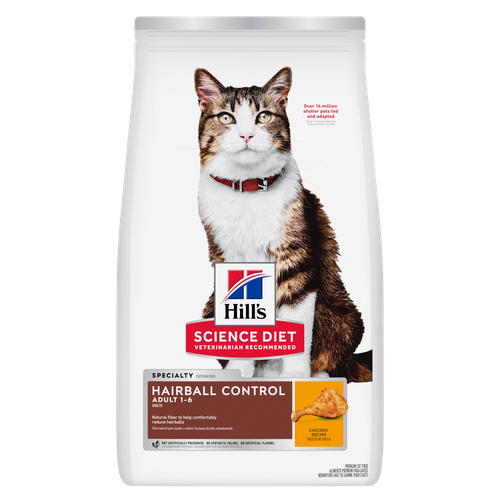
-
Find the right food for your petTake this quiz to see which food may be the best for your furry friend.Find the right food for your petTake this quiz to see which food may be the best for your furry friend.Health CategoryFeatured products
 Hill's Science Diet Adult Healthy Mobility Large Breed Chicken Meal, Barley & Brown Rice Recipe Dog Food
Hill's Science Diet Adult Healthy Mobility Large Breed Chicken Meal, Barley & Brown Rice Recipe Dog FoodAdvanced nutrition shown to support joint health and improve mobility
Shop Now Adult Perfect Weight & Joint Support Chicken & Brown Rice Recipe Dog Food
Adult Perfect Weight & Joint Support Chicken & Brown Rice Recipe Dog FoodThis weight management and mobility support dog food was created with Hill’s unique understanding of the biology of overweight dogs.
Shop Now Adult Perfect Digestion Chicken, Barley & Whole Oats Recipe Dog Food
Adult Perfect Digestion Chicken, Barley & Whole Oats Recipe Dog FoodScience Diet's breakthrough nutrition supports ultimate digestive well-being & healthy microbiome
Shop NowFeatured products Adult Perfect Digestion Chicken, Barley & Whole Oats Recipe Cat Food
Adult Perfect Digestion Chicken, Barley & Whole Oats Recipe Cat FoodHill's Science Diet's breakthrough nutrition supports ultimate digestive well-being & healthy microbiome
Shop Now Adult Hairball Control Chicken Recipe Cat Food
Adult Hairball Control Chicken Recipe Cat FoodNatural fibre comfortably reduces hairballs
Shop Now Adult Healthy Cuisine Roasted Chicken & Rice Medley Cat Food
Adult Healthy Cuisine Roasted Chicken & Rice Medley Cat FoodDelicious roasted chicken and rice in a mouthwatering sauce
Shop Now -
DogCat
- Cat Tips & Articles
-
Health Category
- Weight
- Skin & Food Sensitivities
- Urinary
- Digestive
- Kidney
- Dental
- Serious Illness
-
Life Stage
- Kitten Nutrition
- Adult Nutrition
Featured articles Tips on How to Store Your Dog or Cat Food Properly
Tips on How to Store Your Dog or Cat Food ProperlyWhere you store your cat and dog food can make a big difference in the quality and freshness once it is opened. Here are some common questions and recommendations for optimal storage for all of Hill’s dry and canned cat and dog food.
Read More Fun Ideas for Kids and Pets This Summer
Fun Ideas for Kids and Pets This SummerOutdoor summer activities with your dog or cat can be fun for kids, too. Learn how they also teach kids responsibility & creates a bond with their pet.
Read More Water
WaterWater is the most important nutrient of all and essential for life. Animals can lose almost all their fat and half their protein and still survive, but if they lose 15% of their water, it will mean death.
Read More -



Your new puppy: the first three months
Whatever the breed, all puppies develop in the same way; they pass through the same stages from infancy to maturity. Not only is it interesting for you to know about these stages, it is also important that you should be aware of what your puppy is capable of at any particular time of life.
Although puppies follow the same pattern of development, speeds can vary depending on the breed. Generally speaking, the smaller breeds develop faster and attain maturity before they're a year old; bigger dogs can take as long as eighteen months to develop fully.
From nought to two weeks
During these early few days and just like a new-born baby, puppies will just sleep and suckle. They'll be able to crawl and, if cold, will seek the warmth of brothers and sisters or their mother. Between 10 and 14 days, their eyes will open but sight will be weak for the first few weeks.
Week three
Your puppy's teeth will begin to come through, and they'll learn to walk and drink. By the end of the third week, sense of smell will develop. The breeder of your puppy should subject them to mild stress, but this isn't anything to be alarmed about. Simply picking them up and holding them in different positions is defined as mild stress. This will get your puppy used to human handling, and help them to cope later on in life.


Tasty Tips
From three to 12 weeks: Socialisation
This is a critical time for your puppy; if they’re to develop into a happy and healthy and well balanced pet dog, they need to experience humans, other dogs and the surroundings.
Stage One: From three to five weeks: Puppies start to react to loud sounds, which is useful for mother when she growls to stop them feeding at will. By four weeks, hearing, sight and sense of smell are working more efficiently. They'll bark, wag their tail and play-bite brothers and sisters. They'll also begin to eat solid food and leave the sleeping area to go to the toilet. From four to five weeks, they'll chase and play head shaking games; bare their teeth, growl, and carry things in their mouth.
Stage Two: From five to eight weeks: Your puppy's face will become more expressive and ears and eyes will be more coordinated . They'll join in playing games with brothers and sisters and by the seventh week, and will be ready to go to their new home. By the end of the eighth week, they'll be curious and willing to explore and investigate everything; but at the same time, show signs of caution.
In the final week before you take your puppy home, they should be taken away from their family and come into plenty of contact with humans, children as well as adults.
From week six to eight, your puppy will begin to settle in with you and your family and experience the sights, sounds and smells of their new home. As soon as they cross your threshold, you should begin house-training.
Stage Three: From eight to 12 weeks: Your new puppy will experience a very strong desire to please as they assess their position in a new family. You'll begin to teach them to play human games and help to reduce play-biting.


One of our staff authors prepared this article for you
Related products

Science Diet's breakthrough nutrition supports ultimate digestive well-being & healthy microbiome

Hill's Science Diet Sensitive Stomach & Skin Large Breed dry dog food is gentle on stomachs while nourishing skin & promoting a lustrous coat. In a delicious large bite size for large breed dogs.

This weight management and mobility support dog food was created with Hill’s unique understanding of the biology of overweight dogs.

Advanced nutrition shown to support joint health and improve mobility
Related articles

Learn how today's wet dog food blends have gotten a face lift, and how you'll provide your dog the nutrition he needs in the form he loves.

Learn about choosing the right dog food to help ensure your mature older dog will receive the correct balance of nutrition.

Learn what you can feed your pregnant or nursing dog to keep her and her new pups healthy.

Large breeds of dogs have different nutritional needs than smaller breeds. Learn more about the specific needs of large and giant breeds.

Put your dog on a diet without them knowing
Our low calorie formula helps you control your dog's weight. It's packed with high-quality protein for building lean muscles, and made with purposeful ingredients for a flavorful, nutritious meal. Clinically proven antioxidants, Vitamin C+E, help promote a healthy immune system.
Put your dog on a diet without them knowing
Our low calorie formula helps you control your dog's weight. It's packed with high-quality protein for building lean muscles, and made with purposeful ingredients for a flavorful, nutritious meal. Clinically proven antioxidants, Vitamin C+E, help promote a healthy immune system.

